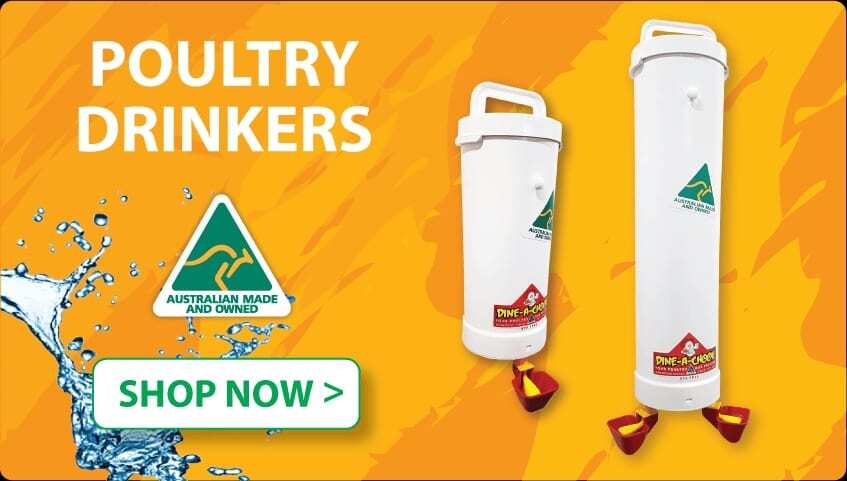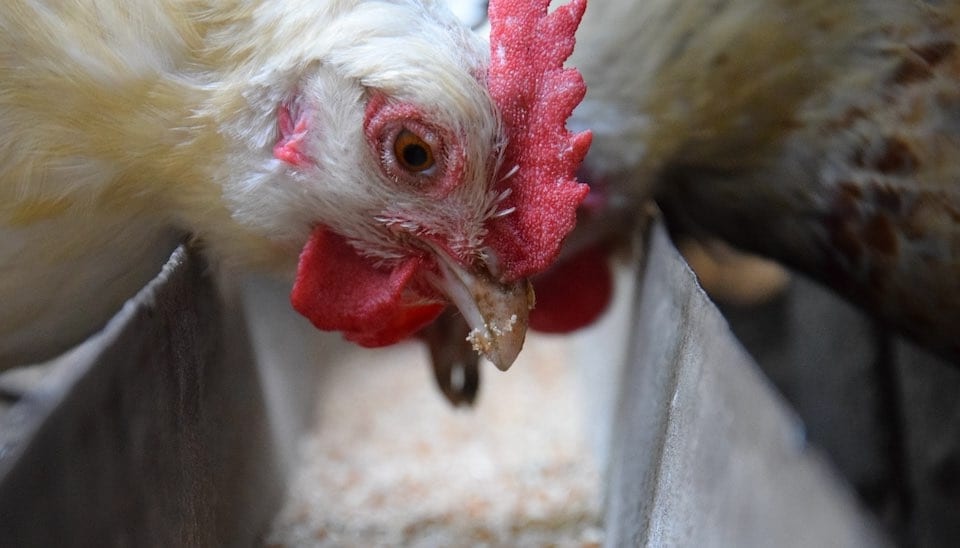How Much Water Do Chickens Need Per Day?
How Much Water Do Chickens Need Per Day?
If you've ever wondered how much water chickens drink per day, you're not alone.
On average, a full-grown chicken drinks about 500 ml of water daily, but this can change based on things like weather and age. 30-day-old chicks may only drink around 150 ml per day.
On hot days, chickens can drink twice as much to stay cool. Without enough water, chickens can become dehydrated, leading to health problems, fewer eggs, and, in severe cases, death.
Keeping water available at all times is one of the most important things you can do for your chickens. Using automatic chicken drinkers makes this job easier by giving your chickens fresh water without needing constant refills.
Key Takeaways:
- Chickens usually drink around 500 ml of water each day, but this can double during hot weather.
- Dehydration can hurt their health and egg production.
- Automatic drinkers make it easy to provide fresh water without needing to refill often.
- Watch their water intake, especially when the weather is hot.
- Chickens generally drink 1.6 to 2 times the amount of feed they consume.
How Much Water Does a Chicken Drink Per Day?
On average, chickens will drink around 500 ml (half a litre) of water each day, but there are many factors that can affect this.
For example, during summer months, they can drink double their usual amount to stay hydrated. A good rule of thumb is to monitor their water supply closely, especially when the temperature rises or if they are going through a molt.
Water is critical for keeping chickens healthy, as it helps regulate their body temperature, aids digestion, and is vital for egg production. Dehydration can quickly lead to a drop in egg production, and in extreme cases, can result in death.
To prevent these problems, make sure your chickens always have access to fresh water.
Best Way to Water Chickens
Using open bowls or containers might seem simple, but they often get knocked over, filled with dirt, or even contaminated with droppings. The best way to water chickens is by using an automatic chicken drinker, like the ones we offer at Dine-A-Chook.
Here’s why automatic drinkers are a great choice:
- No more dirty water: The design keeps water clean by preventing debris from entering.
- Less refilling: With a large-capacity drinker, you won’t have to worry about topping it up multiple times a day.
- Reduced waste: Automatic drinkers deliver water as your chickens need it, ensuring they don’t spill or waste any.
Switching to an automatic drinker can make all the difference, especially during the hot summer months when keeping your chickens hydrated is more challenging.
FAQ: Common Questions About Giving Water for Chickens
Do chickens need constant access to water?
Yes, chickens need constant access to clean, fresh water at all times.
Can chickens drink too much water?
No, chickens won’t drink more than they need. They naturally drink more when it's warm or when their diet requires it (for example, their water need goes up if they have a lot of sodium in their diet).
How often should I change my chickens' water?
If you're using refillable drinkers, it's best to change the water daily to ensure it stays clean. With an automatic drinker system connected to your water line, the water is kept fresh constantly, reducing the need for daily refilling.
What happens if chickens don't get enough water?
Without enough water, chickens can quickly suffer from dehydration, which leads to reduced egg production, lethargy, and even death. Dehydrated chickens may pant, have pale combs, and become less active.
For Poultry Farmers: Detailed Insights on Chicken Water Consumption
If you're managing a larger flock, monitoring chickens’ water consumption can give you insights into the health and performance of your chickens. Dr. Susan Watkins and Dr. G.T. Tabler from the University of Arkansas emphasise that tracking water consumption is one of the most effective tools for monitoring flock progress. According to their research, water consumption should increase steadily as chickens age, with birds consuming about 1.6 to 2.0 times more water than feed.
For commercial broiler flocks, daily water intake is closely linked to the birds' age. A general guideline is to expect 5.28 ml of water per day per bird for every day of age. So, a 30-day-old chicken would need around 158 ml per day.
This can help farmers anticipate how much water their flock will need as they grow.
Seasonal Water Consumption
Water consumption can also vary based on the season. According to research from the Applied Broiler Research Farm (ABRF), water usage tends to increase dramatically in warmer weather—by as much as 6-10 extra litres per 1,000 birds per day after day 18.
Farmers should pay close attention to these fluctuations to ensure their flocks remain hydrated during heatwaves.
Troubleshooting Water Consumption Issues
If you notice that your chickens’ water consumption isn’t following an increasing trend, it could be a sign of an issue. According to the same research, a slight dip in daily water intake isn’t always a cause for concern, but if it remains unchanged for more than a day or two, it’s important to investigate.
Here’s a checklist to help you troubleshoot common water consumption issues:
- Check the drinker line height—is it too high or too low?
- Look for air locks in the water system
- Ensure correct water line pressure
- Check for clogged filters or drinkers—blockages can slow the water flow
- Monitor changes in light intensity or day length
- Feed outages or changes—if the feed changes, water consumption might drop
- Assess bird health—sick chickens will often drink less
- Ensure there are enough drinkers
By following this checklist, you can identify and address any potential issues before they affect the health and productivity of your flock.
Conclusion: Keeping Chickens Hydrated is Essential
Whether you’re raising a few hens or managing a larger flock, clean, fresh water is one of the most important things you can provide for your chickens.
Consistent hydration not only improves their health but also impacts egg production and overall growth. By using Dine-A-Chook’s Chicken Drinkers, you can ensure your chickens are getting the water they need without the daily hassle of constant refilling.
If you’re looking to optimise your flock’s hydration system, contact us today to learn more about how we can help.
Happy chicken keeping!
Read next:






